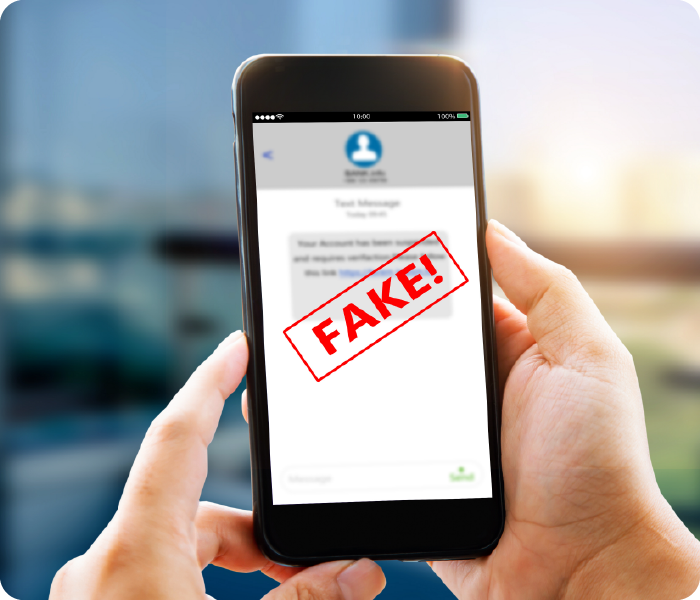
News & Stories
Let’s Stay Connected
Get the latest on Hanmi news and stories.

March 2023
Banks Never Ask That – Phishing Red Flags
Phishing scams today can look as unassuming as a text from your bank asking for a “one-time” code for your two-factor authorization log-in. While there are countless legitimate reasons to receive a text or an email from a business or financial institution, it can be just as easy for scammers to replicate company logos and impersonate trusted businesses under the guise of these generated messages.
It is important to stay on top of the red flags to watch for when it comes to phishing attempts, and familiarize yourself with what banks would never ask you for:
Texting Red Flags:
- Asking for a PIN
- Asking for SSNs
- Requesting for a “one-time” code
Financial institutions will never ask for your pin, other sensitive information, or a “one-time” code to verify your identity through text. If you receive a text asking for this information, it is a scam and you should never click on any links in the message. Delete the message immediately to avoid any risk of accidentally responding.
Emailing Red Flags:
- Asking to download an attachment
- With unsolicited forms to fill out
- Containing misspelled words
Never download attachments from an unverified email address, unless you are certain you know who the sender is. To further differentiate a scam email from a real one, look out for misspelled words or broken grammar. Banks will try to communicate as clearly and effectively with you to address your needs, eliminating chances of finding these errors and confusing wording in legitimate bank emails. When in doubt, confirm through a phone call with your bank.
Phone Call Red Flags:
- Asking for addresses
- Using scare-tactics
- Asking for birthdays
Scammers will also attempt to reach you by phone, much like your bank when prompted. In the event that you get a call claiming to be from your bank, be on the look-out for being asked for your address or birthday, as these can open yourself up to hacker attacks. Your bank will never ask for this information over the phone. If the caller is putting pressure on you to reveal this information right then and there for a time-sensitive issue, they are using scare-tactics and a false sense of urgency to pressure you into sharing your information.
Payment Apps Red Flags:
- Asking you to send money to yourself
- Asking for your password
- Texting or calling unexpectedly
Another common scam comes in the form of payment apps, as the use of apps like Zelle and Venmo grow more prevalent. These scams often start with an unprompted phone call or text. Scammers have the ability to “spoof” their email addresses and phone numbers to look like they are from your bank. If you receive one of these, you should hang up and verify by calling your bank’s direct line or payment app’s customer service number. If possible, refrain from using payment apps to pay anyone you have not met in person. If you receive urgent payment requests or messages asking you to send money to yourself, trust that your bank will never ask for this. When in doubt, call your bank to verify any request before sending any payment.
고객이 최우선입니다
준비된 전문가들에게 문의하세요. 간단한 질문에서부터 종합적인 뱅킹 솔루션까지 성심껏 도와드립니다.
가까운 한미은행 지점에 방문하세요
계신 곳에서 가까운 한미은행 지점과 ATM의 주소, 전화번호와 영업시간을 안내해 드립니다. 고객분들을 언제나 웃음으로 맞이하겠습니다.